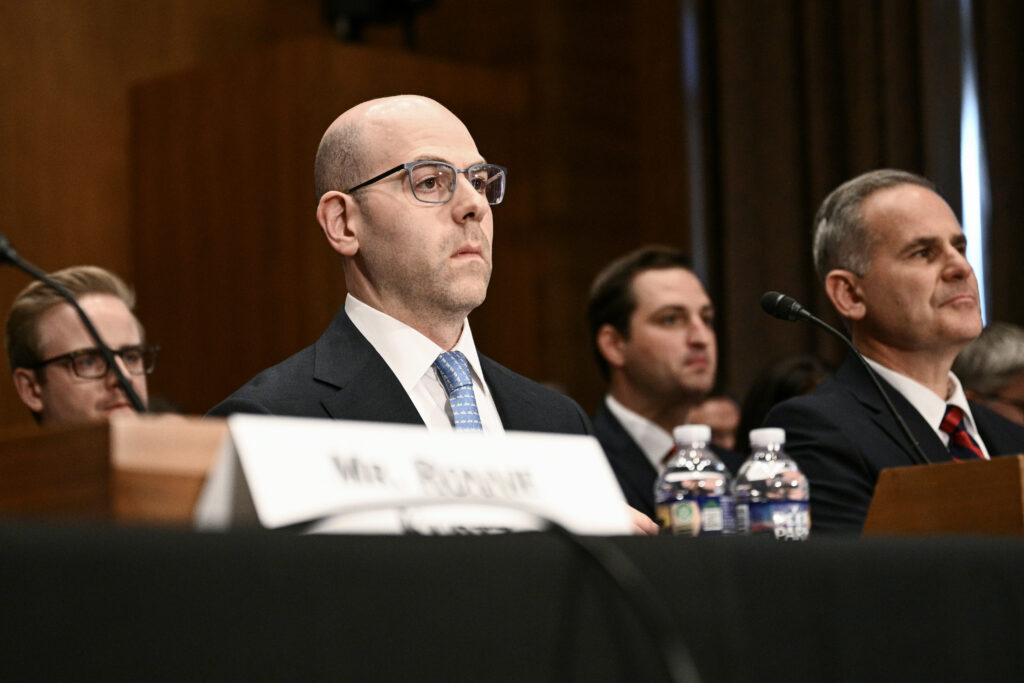Seize morts et beaucoup de questions après le spectaculaire déraillement d’un funiculaire à Lisbonne
Les enquêteurs cherchent à déterminer jeudi les causes précises du spectaculaire déraillement d’un funiculaire de Lisbonne emprunté par de nombreux touristes, qui a endeuillé la ville, faisant 16 morts, dont au moins cinq Portugais, deux Coréens et un Suisse.- Que s’est-il passé? – “Je peux garantir que la sécurité est une priorité absolue de la Carris depuis 152 ans et que nous serons intraitables dans la recherche des causes et des responsabilités de cet accident”, a promis lors d’une conférence de presse Pedro de Brito Boga, le patron de Carris, gestionnaire des transports de la capitale portugaise.Quelques heures avant lui, le Premier ministre Luis Montenegro avait lui aussi promis lors d’une allocution télévisée que les autorités allaient “établir toutes les responsabilités” dans le drame survenu peu après 18H00 locale mercredi (17H00 GMT).D’après le témoignage d’une femme relayé par les médias locaux, l’un des deux wagons jaunes du célèbre ascenseur de la Gloria, qui montent et descendent ce dénivelé de 48 mètres alternativement, en système de contrepoids, est arrivé brutalement au bout de son parcours de 265 mètres, dépassant légèrement sa station d’arrêt habituelle au pied de la chaussée.Cette femme et d’autres personnes ont alors aperçu l’autre véhicule dévaler la rue pentue à toute allure, avant de dérailler au niveau d’un léger virage et de se fracasser contre un immeuble.- Qui sont les victimes? – Jeudi en début d’après-midi, le bilan a été établi à 16 morts et cinq blessés graves selon le Premier ministre, qui a évoqué “une des plus grandes tragédies humaines de notre histoire récente” et qui avait décrété une journée de deuil national dans la foulée du drame.Le service municipal de protection civile avait précédemment évoqué par erreur un bilan de 17 morts.Parmi les personnes mortes dans l’accident se trouvent cinq Portugais, deux Coréens et un Suisse, a précisé le parquet en fin de journée jeudi, précisant travailler à l’identification des autres victimes et sans préciser si les victimes asiatiques étaient originaires de Corée du Nord ou Corée du Sud.Les secours avaient aussi évoqué une vingtaine de blessés, dont un enfant de trois ans et au moins 11 étrangers: deux Allemands, deux Espagnols, une Française, un Italien, un Suisse, un Canadien, un Sud-coréen, un Marocain et un Cap-verdien.Le nombre total de ces victimes, décédées ou blessées, correspond presque exactement à la capacité maximale du funiculaire, qui peut transporter une quarantaine de personnes.- Quel était l’état du funiculaire? – Plusieurs médias ont rapidement évoqué l’éventuelle rupture d’un câble de sécurité, une hypothèse que le patron de Carris n’a pas confirmée en fin d’après-midi jeudi, laissant le soin à l’enquête en cours de le déterminer.Par souci de prévention, la mairie a suspendu le fonctionnement des trois autres funiculaires de la ville, “pour vérification de leurs conditions de fonctionnement et de leur sécurité”, a précisé Margarida Castro, responsable de la protection civile municipale de la capitale portugaise.La question de l’entretien du funiculaire, confié à un sous-traitant par Carris, est aussi sur toutes les lèvres.”La maintenance de cet équipement (…) est externalisée depuis au moins 2007. Actuellement, elle est effectuée dans le cadre d’un contrat conclu le 20 août, entré en vigueur le 31 août”, a précisé M. de Brito Bogas jeudi.”Les inspections périodiques se sont déroulées sans aucune faille (…) Le plan de maintenance de cet équipement a été scrupuleusement respecté”, a aussi insisté le patron du gestionnaire des transports lisboètes. – Lisbonne sous le choc- Après cet “accident sans précédent”, “la ville a besoin de réponses”, a déclaré jeudi le maire de Lisbonne, Carlos Moedas, soulignant que les hypothèses avancées jusqu’ici pour expliquer le drame n’étaient que “simple spéculation”.Dans les rues de Lisbonne, l’accident a choqué touristes et habitants.”Je n’arrive même pas à croire qu’une chose pareille ait pu arriver, et pourtant c’est vrai… C’est un désastre, une catastrophe”, témoigne Eduardo Carrilho, qui tient un kiosque à journaux à quelques centaines de mètres.Jeudi, la rue du funiculaire était toujours fermée à ses deux extrémités, où ont été déposés quelques bouquets de fleurs en hommage aux victimes.Autour de la carcasse disloquée du véhicule, des enquêteurs équipés de gants bleus et de gilets fluorescents ont recueilli des indices puis, en fin de journée, les travaux de déblayage ont commencé et une grue a été positionnée au pied de la chaussée.







